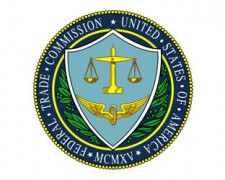The Supreme Court of Tennessee is considering amendments to the Tennessee Rules of Professional Conduct that would place restrictions on advertisements for attorneys. The FCC has advised against many of them.
According to FTC, “The FTC staff comment recommends that the Court decline to adopt proposals that are likely to unnecessarily restrict truthful and non-misleading information available to consumers of legal services in the state. It cites competition and consumer protection principles to aid the Court in reviewing the proposals, and addresses restrictions in proposed amendments that would:
* prohibit the use of actors, models, generally recognizable spokespersons, and certain background sounds;
* impose high substantiation burdens that may prohibit useful, non-deceptive advertising;
* limit advertising by attorneys if they do not also maintain an office in Tennessee; and
* require pre-screening and evaluation of all attorney advertisements by the Board of Professional Responsibility.
For example, in its remarks, the FTC noted that the use of actors or spokespeople does not inherently make an advertisement deceptive – it suggested that if the state feels the need to take some kind of step along this line, it add a requirement to disclose the fact that actors are used; likewise, requiring a spokesperson to restrict their comments to honest opinions or experiences.
It also noted that many honest and non-deceptive messages may not lend themselves to being supported as a “substantiated fact.” It suggested that the language be aimed at preventing statements that mischaracterize the attorney’s abilities or services.
It suggested two reasons to avoid pre-screening ads. One is that it would tend to put the ads under the scrutiny and approval of a panel comprised of competing attorneys; and the other is that it would impose a financial burden on the attorneys. It suggested this area be avoided altogether.
FTC also said that preventing ads from out-of-state attorneys may be overbroad, since there is no residence requirement on attorneys, as long as they are licensed to practice in the state. It said the provision would unnecessarily restrict competition among attorneys over a consumer protection matter already served by the licensing process.
The agency concluded, “FTC staff believes consumers receive the greatest benefit when reasonable restrictions on advertising are specifically and narrowly tailored to prevent unfair or deceptive claims while preserving competition and ensuring consumer access to truthful and non-misleading information. Ru1es that unnecessarily restrict the dissemination of truthful and non-misleading information are likely to limit competition and harm consumers of legal services in Tennessee.”
FTC’s full comments can be read here.
http://ftc.gov/os/2013/01/130125tennesseadvertisingletter.pdf
RBR-TVBR observation: Freedom of speech is not quite so free when it is applied to advertising speech, and it’s good to see the FTC taking steps to keep it as free as possible. This advice to the court in Tennessee is advertiser-friendly, which makes it broadcaster friendly.





